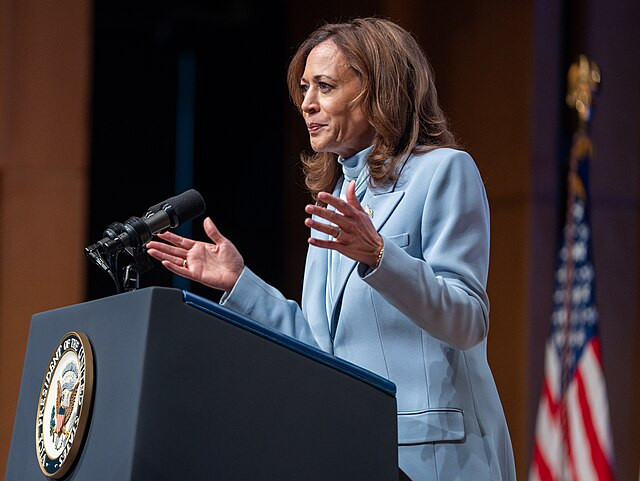Vice President-turned-presidential nominee Kamala Harris is publicly breaking with Joe Biden in her forthcoming memoir, sharply criticizing the former president's decision to seek a second term in 2024 and calling it "recklessness" that risked handing the White House back to Donald Trump.
In 107 Days, set for release on Sept. 23, Harris recounts the tense months leading up to Biden's July 2024 decision to drop out of the race, just four months before Election Day. "It's Joe and Jill's decision. We all said that, like a mantra, as if we'd all been hypnotized. Was it grace, or was it recklessness?" Harris writes. "In retrospect, I think it was recklessness. The stakes were simply too high."
The former vice president says she felt unable to push Biden to withdraw despite growing alarm among Democrats after his disastrous June debate with Trump, in which Biden stumbled repeatedly and appeared confused at several points. "I knew it would come off to him as incredibly self-serving if I advised him not to run," Harris writes. "He would see it as naked ambition, perhaps as poisonous disloyalty."
Harris acknowledges Biden's age - a persistent political liability - as a factor but stops short of endorsing claims that he was cognitively impaired. "At 81, Joe got tired. That's when his age showed in physical and verbal stumbles," she says. "I don't believe it was incapacity. If I believed that, I would have said so. As loyal as I am to President Biden, I am more loyal to my country."
Biden's decision to step aside on July 21 followed weeks of mounting pressure. High-profile figures including actor and Democratic donor George Clooney and Rep. Adam Schiff publicly called for him to withdraw. Biden endorsed Harris as his replacement, saying, "My very first decision as the party nominee in 2020 was to pick Kamala Harris as my Vice President. And it's been the best decision I made."
Beyond Biden's decision-making, Harris' memoir levels pointed criticism at the White House for what she calls a lack of support for her vice presidency. She recounts that "when the stories were unfair or inaccurate, the president's inner circle seemed fine with it," and accused aides of adding "fuel to negative narratives that sprang up around me."
She describes being left without adequate messaging support as Republicans labeled her the "border czar," despite her limited role in managing border enforcement. "No one in the White House comms team helped me to effectively push back and explain what I had really been tasked to do," Harris writes, adding that aides "rarely pushed back with my actual résumé" when conservative media attacked her.
Harris frames her struggles as symptomatic of a "zero-sum" attitude inside the West Wing. "If she's shining, he's dimmed," she writes, arguing that Biden's team failed to understand that her success was crucial to reassuring the public about the administration's continuity.






